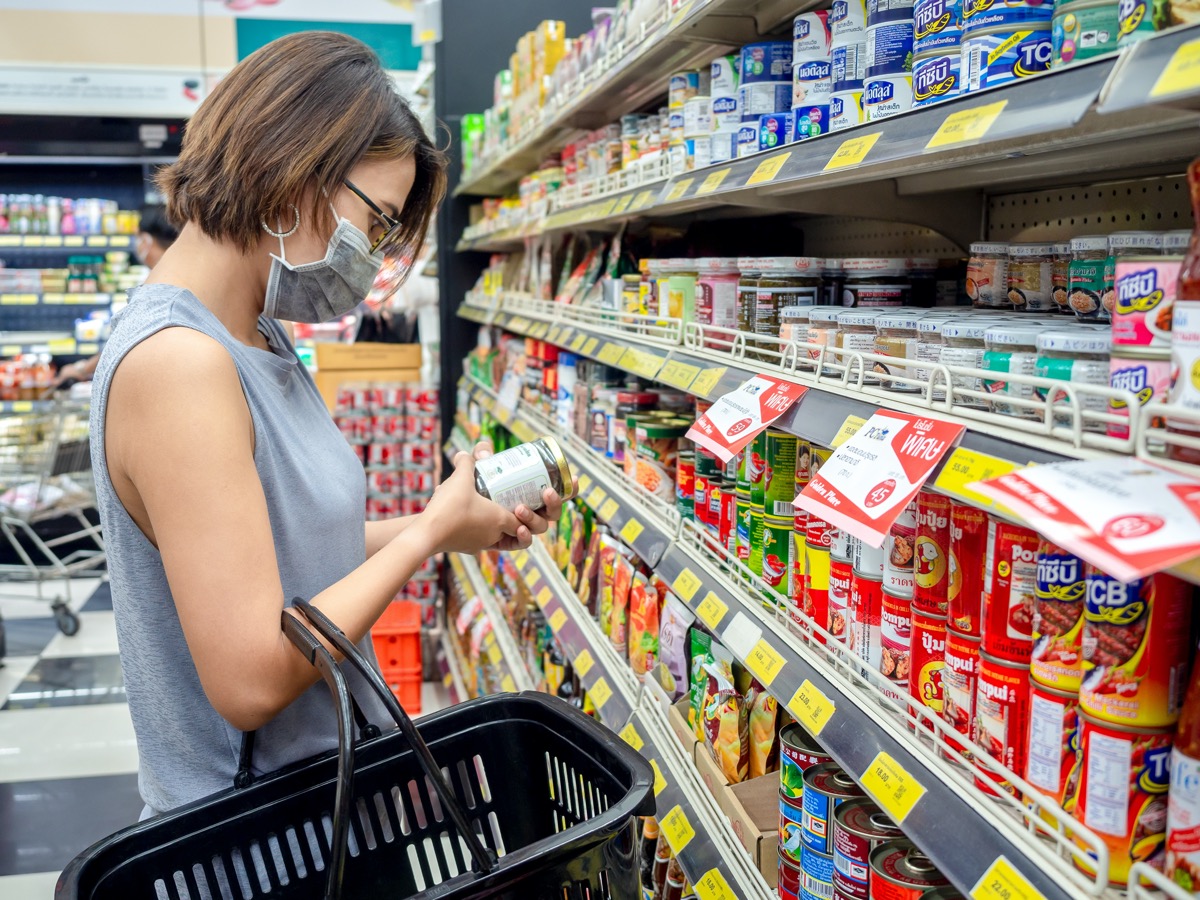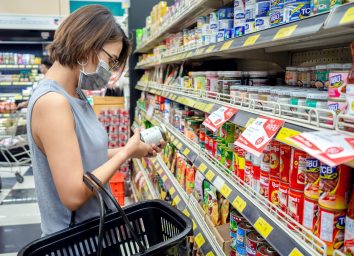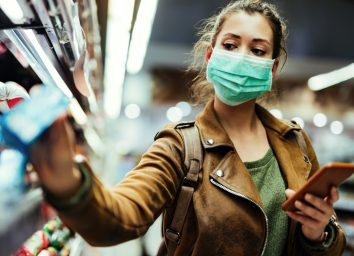The One Grocery Store Item You Should Never Touch

Almost one full year into the COVID-19 pandemic, we've all become painstakingly familiar with the best safety protocols recommended by the CDC. From wearing masks to keeping socially distant and frequently washing our hands, the rules have become second nature. We also know a lot more about the virus and how it spreads than we did last spring—such as the risk of catching COVID from food products, food packaging, or grocery shopping bags is low, according to the CDC. Still, if you've yet to be vaccinated, now is not the time to let your guard down at the grocery store or any other public place. In fact, there are some basic hygiene tips you should follow from here on out to keep your chances of picking up unwanted viruses or bacteria extremely low.
For starters, know that one of the most bacteria-packed items in the grocery store is waiting for you the moment you enter the store: The shopping baskets.
The handles of these baskets are frequently touched by other shoppers—and what's more, they're held on to throughout the duration of a grocery shopping trip. So, unlike other oft-touched things—like credit card pads or self-checkout screens—grocery baskets have a higher potential of transferring bacteria from one handler to the next.
Why Grocery Store Baskets Can Be So Dirty
Experts say grocery store basket handles are much less likely to get the regular cleanings that they should—and even when they are disinfected, it's hard to do a thorough job.
"It's almost impossible to wipe off all the surfaces that people might touch," says Leann Poston M.D., M.B.A., M.Ed, a consultant for Invigor Medical. "Baskets are stacked and then used. Even if the baskets were thoroughly cleaned, they might be contaminated when removed. Unlike shopping carts, it is tough to keep your shopping basket away from personal items and clothing."
Gail Trauco R.N., BSN-OCN, patient advocate and CEO/founder of Medical Bill 911, agrees that cleaning baskets presents particular challenges.
"The structure of the baskets—weave and ridged surfaces—create places for [germs] to hide during cleaning. Baskets are disinfected, however, it is impossible for a retailer to clean each crack and crevice," she says, pointing out that how baskets are handled also presents sanitary risks. "You carry the basket on your arm, in your hand, or may change hands. Baskets are more likely to rub against clothing, counters, or product surfaces, spreading contamination."
A Cleaner Shopping Option
Trauco urges grocery shoppers to skip the baskets and instead opt for a shopping cart (if available). Its handle is much easier to clean with antibacterial wipes—and many grocery stores have tasked associates to wipe them down after each use during the COVID-19 pandemic.
"Minimizing exposure to surfaces touched while shopping lowers your risk of exposure," says Trauco. "Localize surface exposure to the shopping cart's handle, and place items in your cart without touching additional surfaces."
Dr. Rashmi Byakodi, a wellness expert at Best for Nutrition, echoes these points, saying: "It's better to use a cart as you can just sanitize the handle before use."
Once you're done shopping and have checked out, make sure you return the shopping cart to a designated area for returned carts (if there is one). And then, immediately apply hand sanitizer to your hands—The CDC advises the use of hand sanitizer that contains at least 60% alcohol each time you touch a surface.
Even when the pandemic is over, keeping these tips in mind will keep you safe—and bacteria, viruses, and germs at bay—when you're at the store.
For more grocery shopping tips, make sure you're aware of the grocery shortages to expect this year, according to experts.








